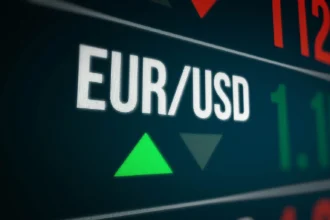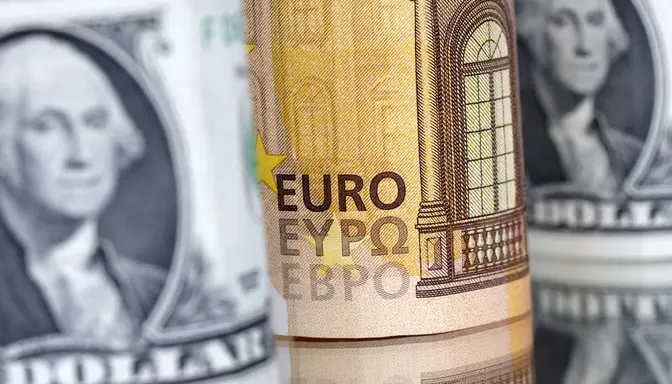Euro Rallies on German Fiscal Deal as Dollar Wavers Amid U.S. Shutdown Relief
The euro climbed on Friday as Germany’s political parties reached a pivotal fiscal agreement aimed at bolstering defense spending and reigniting growth in Europe’s largest economy. The move sparked optimism in the markets, positioning the euro for a second consecutive week of gains.
Euro Gains as Germany Greenlights €500 Billion Stimulus
In a major political development, German Chancellor-in-waiting Friedrich Merz secured crucial backing from the Greens for a sweeping fiscal reform package. The deal includes a €500 billion ($544.3 billion) fund earmarked for infrastructure upgrades and significant revisions to Germany’s borrowing rules.
Markets responded swiftly, with the euro appreciating 0.27% to $1.0876 against the dollar. The single currency also surged 0.48% to 84.11 pence versus the British pound and rose 0.62% to 0.9626 against the Swiss franc.
FX strategists expect further upside for the euro in the coming weeks. “We anticipate the German fiscal reform will pass next week, supporting the euro, particularly against the Swiss franc and British pound,” said Dominic Bunning, Head of G10 FX Strategy at Nomura. “Additionally, the ECB’s likely decision to hold rates steady in April could offer a more hawkish surprise compared to current market pricing.”
Dollar Mixed as Shutdown Fears Ease, Inflation Expectations Surge
While the euro strengthened, the dollar showed mixed performance. It weakened against the euro but gained 0.35% to 0.885 versus the Swiss franc and rose 0.48% to 148.50 against the Japanese yen. For the week, the greenback advanced 0.58% against the franc and 0.30% versus the yen.
Investor sentiment brightened after U.S. Senate Democratic Leader Chuck Schumer signaled support for a Republican stopgap funding bill, likely averting a government shutdown over the weekend. The dollar’s resilience was further supported by rising U.S. inflation expectations.
The University of Michigan’s latest survey revealed that while U.S. consumer sentiment dipped sharply in March, 12-month inflation expectations soared to 4.9%, up from 4.3% in February, driven by concerns over President Donald Trump’s aggressive tariff stance.
Global Currency Moves: Sterling Slips, Yen Eyes BoJ
The British pound weakened 0.15% to $1.2931 following news that the UK economy contracted by 0.1% in January. However, sterling remains close to its recent four-month high of $1.2990 and is still poised for a second consecutive weekly gain.
In Japan, the yen lost ground as companies announced the largest wage hikes in over three decades, agreeing to raise pay by 5.46%. The data will likely influence the Bank of Japan’s upcoming policy decision, with analysts expecting the central bank to maintain its current stance amid global uncertainties.
Dollar Index Faces Second Straight Weekly Decline
The U.S. dollar index, which tracks the greenback against a basket of six major currencies, dipped 0.08% to 103.75 and is on track for its second consecutive week of losses. Analysts cite global fiscal policy divergence and heightened volatility from tariff tensions as key factors behind the dollar’s recent performance.
“There’s a marked shift happening,” said Brad Bechtel, Global Head of FX at Jefferies. “While the U.S. is pulling back on fiscal stimulus, the EU is ramping up spending, creating a divergence that traders are adjusting to.”
Canadian Dollar Strengthens as Carney Becomes Prime Minister
In Canada, former central banker Mark Carney was sworn in as the new prime minister. His immediate assurance that he could work constructively with President Trump helped calm market fears over potential tariff fallout. The Canadian dollar gained 0.51% to C$1.44 per U.S. dollar following the news.
Outlook: Optimism Returns to Markets
Macquarie analysts noted that traders are welcoming a reprieve from recent geopolitical and economic tensions. “A volatile week is ending on a slightly optimistic note,” they wrote, citing positive developments in the U.S., Germany, and Canada.



